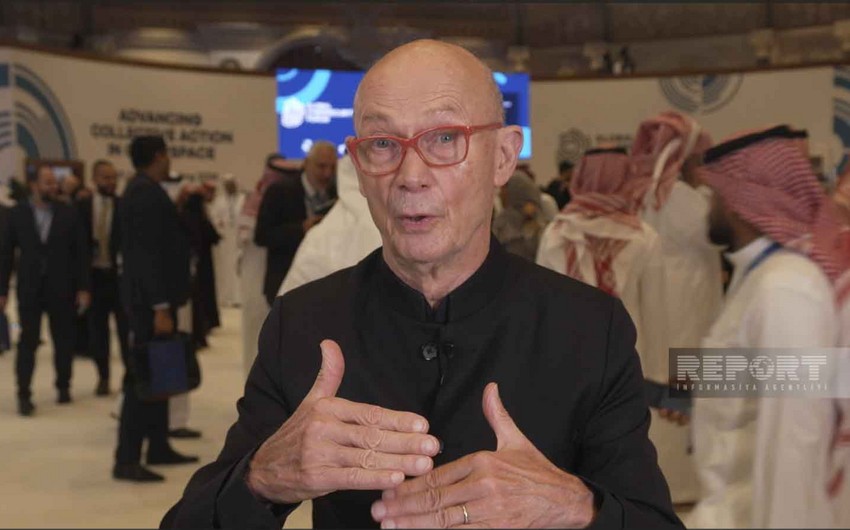In 1997, Azerbaijan submitted an application expressing its intention to join the World Trade Organization (WTO), and has been consistently working towards this goal, holding meetings and taking various steps. The WTO, established in 1995, aims to maximize the liberalization of international trade and create a solid foundation for it, thereby increasing economic development and improving people's living standards. But what obligations does the WTO impose on member countries, and what advantages does it create? What duties and privileges will Azerbaijan have if it becomes a member of this organization?
Pascal Lamy, the former director-general of the WTO, answered questions about this issue in an interview with Report.
- Which sector can WTO primarily support in Azerbaijan?
- WTO membership can provide Azerbaijan with a fair competitive environment globally. This, for example, allows countries with advantages in agriculture to benefit from their capabilities without facing obstacles such as heavy subsidies existing in other countries. WTO rules on agriculture allow for more flexibility in developing national policies compared to the production or service sectors.
- Considering the importance of the energy sector for Azerbaijan's economy, what requirements does the WTO put forward for this sector? How can Azerbaijan align its energy interests with WTO obligations?
- The WTO shows interest in the energy sector. Because energy is directly related to trade, and trade is directly related to energy. However, the rules regulating energy trade in the WTO remain weaker than those regulating trade in goods, services, manufacturing or agriculture. The reason for this is quite simple - energy issues are kept closer and under more scrutiny at the state level compared to other types of trade.
Nevertheless, despite the WTO applying fewer rules to energy trade, there are a number of obligations regarding freedom of transit here. These obligations play an important role in energy resources such as oil or natural gas. It also ensures that energy prices are kept at an appropriate level to prevent countries from overusing their advantage in energy exports.
This was one of the issues that needed to be resolved when negotiating Saudi Arabia's entry into the WTO years ago.
- What is the overall purpose of countries joining the WTO? What do they gain from this membership?
- The main purpose of a country joining the WTO is to further expand its trade with neighbors and partners and to undertake commitments to comply with WTO rules in the future. Countries participating in the WTO are more successful in expanding their trade and developing their economies. This is an indicator of the success we have achieved continuously over the past 30 years.
- What role can WTO membership play in improving the investment climate in Azerbaijan? What measures should be taken to attract foreign investments?
- Looking at the experiences of WTO member countries over the past 20-30 years, we can see that membership in the organization plays a role in shaping investors' attitudes towards a country. WTO membership is considered a kind of "insurance". Thus, WTO membership assures investors that the country they invest in will act in accordance with regulations and have an open market economy. This is perceived as a kind of reward by investors. In other words, investors take more willing steps when they have confidence that a country will remain committed to the WTO and protect their investments. In this sense, WTO membership is a quality label and is important in attracting investment.
- What requirements does the World Trade Organization set for the protection of intellectual property? How can Azerbaijan strengthen its intellectual property protection system in accordance with WTO requirements?
- Protection of intellectual property in accordance with international standards is one of the conditions that must be met for WTO membership. If you want to become a member of the WTO, this is one of the 25 criteria you must fulfill. This means providing the necessary protection for intellectual property owners participating in both domestic and international trade. Even when there are foreign actors in trade activities, they should be assured that they are trading in accordance with international intellectual property protection standards.


 https://static.report.az/photo/72b58540-fc1d-314a-9851-8f5cd1e8a313.jpg
https://static.report.az/photo/72b58540-fc1d-314a-9851-8f5cd1e8a313.jpg

